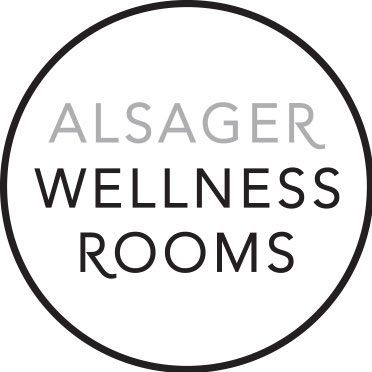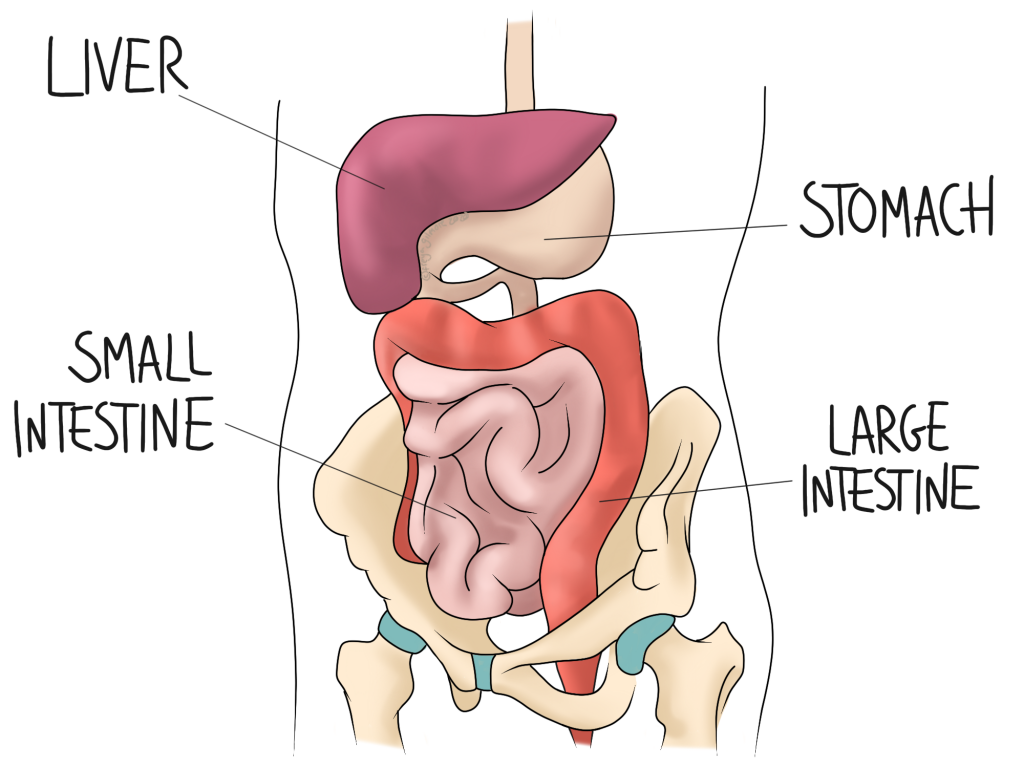Although most of our patients present with problems involving muscles, joints, or nerves, sometimes we can help with more visceral issues too.

Muscles within the Digestive System
Although we think of organs as totally separate to the musculoskeletal system, there is crossover. Intestines move food through the body using muscles (although they are slightly different to those elsewhere), and muscular sphincters are present throughout the system.
The diaphragm is one large muscle that could be considered part of the respiratory system, but it has a role to play in digestion too. The oesophagus (food pipe) runs right through the diaphragm, allowing the muscle to support the sphincter at the top of the stomach. This has been dubbed “the anti-reflux barrier“. Reflux (or heartburn) is the result of stomach contents leaking back up through the sphincter, so when the diaphragm supports the sphincter, it helps to prevent this leakage. Your osteopath has techniques they can use to relax a tight diaphragm, and exercises to help encourage it to work more efficiently.
There are other factors that may cause your reflux, so your osteopath may like for you to keep a food diary to see if there are any other ways you can support your progress. This will all be discussed in treatment.
Theories of Nerves and the Digestive System
Just like nerves leaving the spinal cord supply different levels within the body, they supply different organs as well. Some researchers theorise that treatments affecting these specific nerves can have a positive effect on their relevant digestive organs.
One study used spinal manipulations for patients who suffer with IBS. Compared to the control group, the patients with IBS had significant improvements in their symptoms after treatment. The idea here is that manipulations to the spine may have an effect on the nearby nerves, consequently the organs they supply, too.
Wider-Reaching Reactions to Abdominal Issues
When you have abdominal pain or discomfort, the body might try to protect itself by making you double over, or at least flex forward slightly. This might be subtle enough that you don’t notice it yourself, and in the short term this is unlikely to cause any problems. But holding yourself in such a position for a longer period of time can cause knock-on effects. If the curling up is provided by the upper back, it might encourage rounded shoulders and stiffness in the upper back itself. The stiffness can increase the demand on other areas of the spine, such as the neck and lower back, predisposing these areas to overstrain injuries.
Linking back to the diaphragm, this posture can also limit your breathing, asking more of the smaller muscles that support the diaphragm. These muscles are found in the tops of the shoulders and can become fatigued quickly when relied on for a significant length of time. If you find that your abdominal symptoms are associated with shoulder or neck pain, this may be why, and your osteopath can help you to manage your symptoms.
Make an appointment in Alsager for your digestive issues today- contact us on 077 7593 1609


